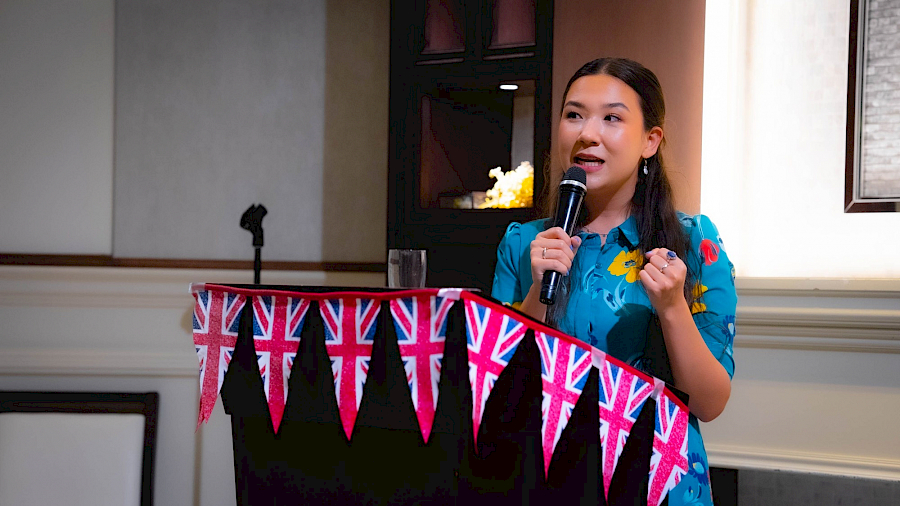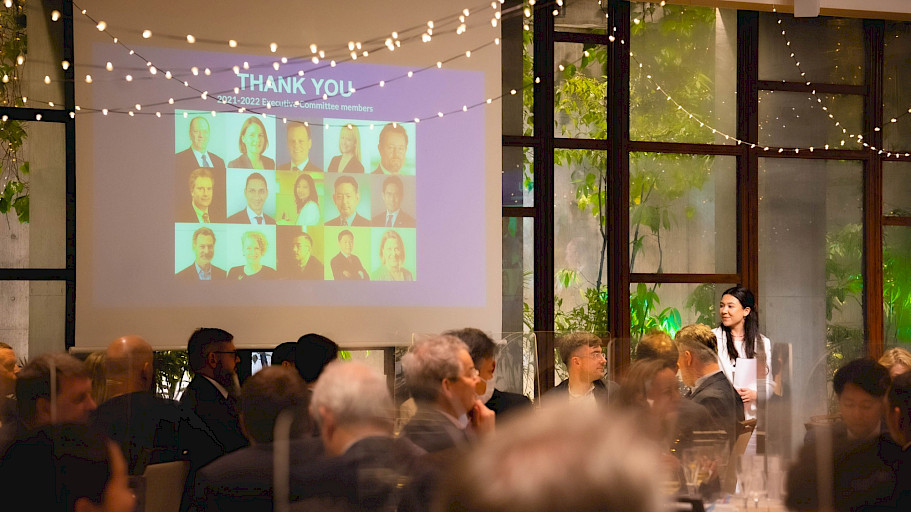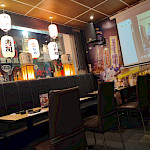27 Apr 2024
JETAA News

31st July 2022
JET Spotlight: Sarah Backley
I am currently the executive director at the British Chamber of Commerce in Japan (BCCJ). I initially joined the BCCJ in January 2020 as the associate director and began my current position in April of this year.
The BCCJ is a nonprofit organisation based in Tokyo, with a mission to help its member companies and individuals make connections with people who matter to them in business. Bigger picture, we strive to strengthen the relationship between the UK and Japan, through the promotion of greater diversity, equity and inclusion, sustainable business and the adoption of digital and technological innovations.
Why did you decide to go on the JET programme and where did you go?
I decided to apply for the JET programme after majoring in Japanese and linguistics at the University of Edinburgh. I wanted to do something that would further enhance my knowledge of the Japanese language but also give me a chance to experience working a Japanese working environment, which is why I went for the Coordinator for International Relations (CIR) position. I was placed in Oita city in Oita prefecture; specifically, I was based in the Rugby World Cup promotion division within the prefectural government. This was in August 2017, two years before the Rugby World Cup (RWC) took place, but this division had been formed (I believe) a couple of years before I joined.
My key tasks as a CIR were to provide all necessary RWC-related information in English for visitors, coordinate with the teams involved in the relevant matches, and help to create long-lasting links between Oita and the visiting nations. I was working with teams from eight countries predominantly in English, and with the local government and stakeholders to communicate their needs and make sure that the prefecture was ready to host the teams, the players, and of course, the fans coming from all over the world.
What are some of your best JET memories?
Oita was beautiful. I had never experienced living in the Japanese countryside before. I was still based in a city, but having only ever grown up in much larger major cities, I loved the simple fact that everything I needed was within walking distance. The people that I met throughout my time in Oita were so incredibly welcoming, inclusive and genuinely interested to learn about me and life in the UK.
I set up small monthly sessions for anyone who was interested in learning about the UK, but also work on their English. It generally consisted of older Japanese, retired individuals who were looking to connect with others who wanted to learn English, many of whom I still have close relationships with to this day. It was my birthday earlier this month, and I was stunned by the number of people who had remembered (bearing in mind they're not on social media!). I really have found that it's the connections you make in rural Japan which really stick.
What was your biggest challenge whilst on JET, and how did you overcome it?
I was there in the lead-up to a global event, and one that Japan hadn't hosted before, and what's more is that Oita had never hosted a large-scale event predominantly held in English. This presented challenges with some of the smaller stakeholders, including local izakayas and restaurants which were not equipped to handle the influx of overseas visitors. The main cross-cultural hurdles I found were the lack of English on menus, the cash-based payment system, and difficulty of finding some of the venues that weren't listed on Google Maps. During my time on JET, I did my best to expose and prepare them for what was to come during the tournament, including the types of dishes that were more likely to attract customers who had never been to Japan before.

How did your career progress after finishing JET?
In October 2019, I was interpreting at a charity rugby match in Beppu for local Japanese primary school students, and also aboriginal Australian children and students from Laos. The head of the charity had come for this event, and through a conversation at the dinner afterwards, she asked me what my plans were post-JET., At that stage was considering returning to the UK, and I explained that my main interests were around UK-Japan relations and event coordination; and that I was looking for a people-facing role in which I could build and strengthen relationships. She very quickly put me in touch with my now former boss, who was looking for someone to cover her maternity leave and thought I would be a good fit. I do definitely feel as though luck was on my side. I then moved up to Tokyo shortly after the RWC ended, in January 2020, and started at the company that I am at now.
Sounds like that came about through networking.
Yes, I would say networking is one of the strongest assets of the JET programme. The number of people you meet whilst on the programme if you allow yourself to, is extraordinary. It is such a unique mix of people in the local area that you get to meet, and as one of the token international people of the town, you're in a great position to meet others who are in similar roles across other towns, cities and prefectures. You never know where those small sideline conversations will lead. The network is something I would encourage all JET participants to try and grow during their time on the programme. They can do this by joining local group activities or more national ones, like (without meaning to plug here) the local Chamber of Commerce. These organisations host a variety of networking events specifically for this purpose, and JET programme participants are certainly a pool of talent that companies are looking for.
Is that what you do in your current role?
Absolutely, with Japan's borders still relatively closed, we are seeing that talent pool shortage is a concern across industries. Companies are looking for internationally minded individuals, often who already have some knowledge of the Japanese language and have experience working in Japan. I'm working closely with CLAIR to make sure these opportunities aren't missed for those wanting to stay and pursue a career in Japan.
Any other skills from the JET programme that have helped you in your current position?
For me personally, it was learning how to successfully coordinate different groups of people. This included teams and various organisations from France, Uruguay, Wales, England, and a number of other countries, all with the same goals but with different ways of getting there. I learned quickly that this came down to a difference in business and cultural practices, so I focused on trying to navigate these differences and align them with how a more traditional Japanese government organisation operates. This was definitely a skill that I had to learn on the job and has paid off in my current role; working with and coordinating hundreds of cross-sector stakeholders and partners in Japan and the UK.
Any tips for people who want to get into a similar field?
Networking still has to be my number one tip; it's something that you get out as much as you put in. Outside of that, I would say to take the chance whilst you're in Japan to really work on your Japanese language skills. This may seem like a given, but it is a qualification that may differentiate you from someone who has exactly the same skill set and experience in the field coming from overseas. I believe that having at least that base-level Japanese will take you so much further if looking to work in Japan.









